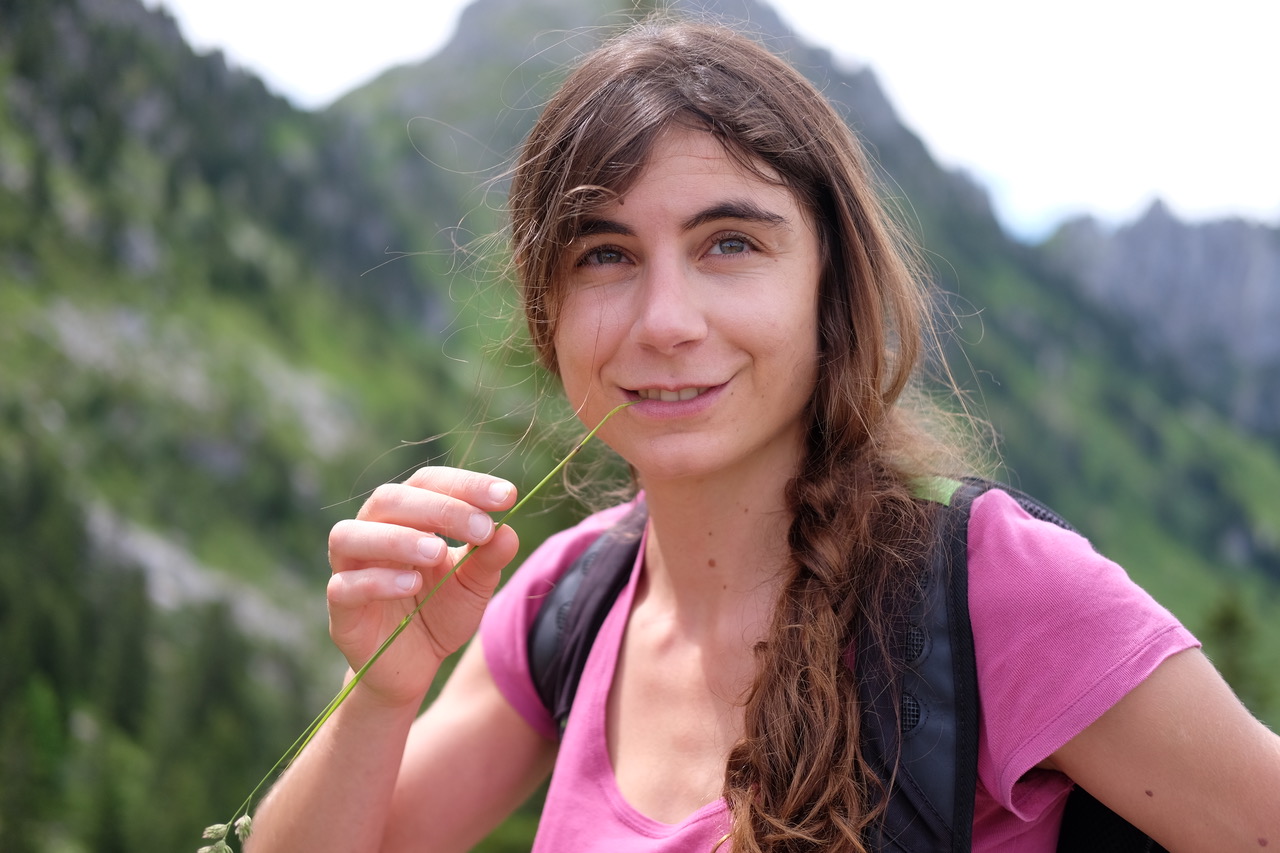In memoriam Alma Dal Co
On November 14, 2022, our beloved friend and colleague Alma Dal Co passed away. She died doing what she loved most, diving, off the coast of Pantelleria in Italy. She was 33 years old at the time of her passing. Alma was a professor at the University of Lausanne in the Department of Computational Biology, and a member of the NCCR Microbiomes. She is leaving a huge gap as an exceptionally visionary and talented scientist, as an inspiring mentor and role model, and as a great friend and colleague.

Alma was born and raised in Italy, spending most of her childhood in Venice. From early childhood on Alma was curious about the world in all its facets: from nature, art and music to math and science. She directed her boundless energy and strong drive to her two main passions, music and science. She attended the Conservatory in Venice where she graduated with a diploma in music when she was 23 years old. At the same time, and with great success, she studied physics at the Universities of Padua and then of Turin.
She moved to Switzerland in 2014 to start her PhD at ETH Zurich and Eawag. During her PhD, she made seminal contributions to the understanding of microbial life. She developed experiments that allowed her to study how the metabolism and growth of individual bacterial cells depend on other cells in their vicinity. Alma discovered that, in such communities, individual microbial cells mostly interact with their immediate neighbors. This discovery helps us understand how the activities and functions that we observe at the level of microbial communities emerge from the interactions at the level of individual cells.
After finishing her PhD in 2019, she moved to Harvard University to do postdoctoral research. Combining her expertise in physics with the ideas that she developed during her PhD, she extended her focus beyond microorganisms and started investigating general questions about how complexity arises in biological systems. She developed a new modeling framework to try to understand how interactions at the level of individual cells can create the complex spatial patterns that characterize tissues and organs of multicellular organisms.
In 2021, Alma accepted a professorship at the University of Lausanne in the Department of Computational Biology, and became a member of the NCCR Microbiomes. She recruited five excellent young researchers, PhD students and postdocs, who shared her passion and courage for tackling big questions and getting to the bottom of how things work. Together with her group, she developed a portfolio of projects to explore how biological functions and spatial structure arise in groups of interacting cells. The group addresses this question using a range of model systems, from experimental work with simple synthetic communities and natural microbiomes to computational work on human tissues. The overarching goal of the group is to understand how complexity can arise from simplicity.
Among Alma’s many outstanding attributes was her fearlessness. She never hesitated tackling a problem, no matter how hard it seemed. And she never hesitated jumping in water, no matter how deep it was. This fearlessness made her such an outstanding scientist and such a wonderful friend.
An electronic memory book set up by the Department of Computational Biology is available at the following link: https://www.kudoboard.com/boards/P0C6wD6t/honouring-alma-dal-co